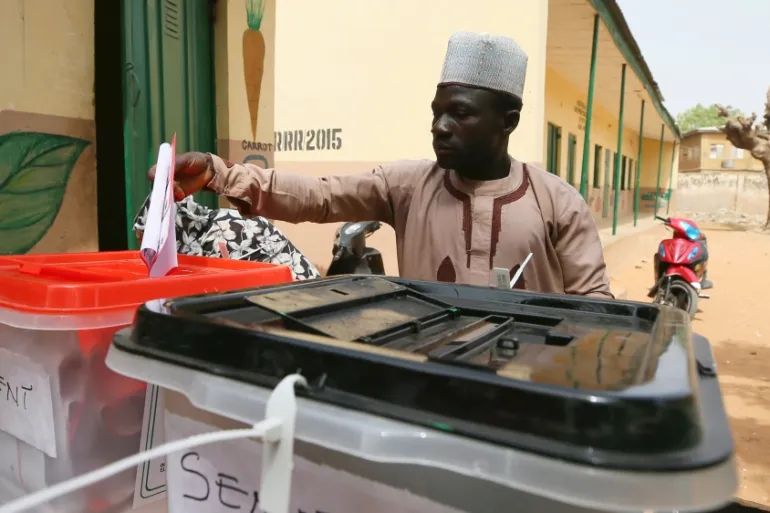Nigeria, Africa’s largest democracy and economy, is set to hold its presidential elections today on February 25, as citizens head to the polls to choose a successor to President Muhammadu Buhari, who is currently serving his second and final term in office. Nigeria elections 2023 marks the country’s highest-ever number of eligible voters, with over 93 million people registered to vote, according to the Independent National Electoral Commission.
The Nigerian population is mainly young, with 39.65 percent falling in the age group of 18-34, while 35.75 percent are between the ages of 35 to 49. Some of the top contenders for the presidency include Bola Ahmed Tinubu, a former governor of Lagos state from the ruling All Progressives Congress (APC) party, former vice president Atiku Abubakar from the main opposition People’s Democratic Party (PDP), Peter Obi from the Labour Party, and Rabiu Musa Kwankwaso from the National Rescue Movement party.
How is the winner decided?
To be declared the winner of the presidential election, a candidate must achieve two golden targets, as per Nigeria’s electoral law. The candidate must receive the highest number of valid votes as well as at least 25 percent of the votes in at least two-thirds of the country’s 36 states, including the capital, Abuja. If none of the contenders meets these requirements, a second round of voting shall be conducted with the top two candidates standing.
How do people vote in the Nigeria elections 2023?
The voting process involves nearly 177,000 voting centres across Nigeria, where voters will queue up, with polls usually opening at 8 am local time. The accreditation process involves biometric verification of voters and their voting cards by election officials using electronic devices known as card readers. Accredited voters will then cast their votes for their candidate of choice using an open-secret voting system. Security personnel and representatives are usually deployed at polling stations to ensure a smooth process.
At the end of voting, the electoral officials at each polling station will announce the results for that centre after sorting out and counting the votes cast. Both local and international observers will monitor Nigerian elections. The election commission is expected to announce the final results a few days after voting, and elected Nigerian presidents are usually sworn into office on May 29 of the election year.
Image Credit: Afolabi Sotunde/Reuters





